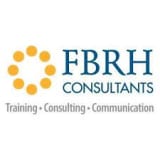This informal CPD article Sustainability reporting requirements are expanding in Europe was provided by FBRH Consultants, who aim to help businesses gain value by operating in much cleverer, sustainable ways.
As the EU appears as a front-runner in today’s shifting sustainability landscape, the European Council and Parliament have agreed on the Corporate Sustainability Reporting Directive (CSRD), seeking to enhance non-financial reporting in the EU and promote the transition to a sustainable economy. It appears likely that 49,000+ companies will be required to report according to new sustainability reporting standards in 2024, on the basis of FY2023 information.
The CSRD will replace the 2014 non-financial reporting directive (NFRD), and will include more detailed reporting requirements. The aim is to make sure that large companies report on sustainability topics such as environmental rights, social rights, anti-corruption and bribery, and human rights.
Key facts about the CSRD that all businesses should be aware of:
- According to the CSRD proposal, companies need to report following the new EU sustainability reporting standards. The EU sustainability reporting standards, prepared by EFRAG (European Financial Reporting Advisory Group), will be mandatory for all large companies, and provide for SMEs to follow a simplified reporting scheme. The new EU sustainability reporting standards will be based on well-regarded global sustainability reporting initiatives and standards, such as SASB and GRI.
- The CSRD proposal applies the double materiality approach. What does double materiality mean? It means that organisations and businesses should not only report on how various sustainability issues may affect the company, but also on how the company, through is activities and operations, affects the environment and society. This approach goes beyond assessing risks, encouraging businesses to identify, measure and manage their impacts on the world.
- The CSRD will cover 49,000 companies, as compared to 11,000 under NFRD. The new directive applies to all large EU member states’ companies and all European stock exchange-listed companies. Among non-European businesses, all businesses generating a net turnover of €150 million in the EU which have at least one subsidiary or branch in the EU will have to provide a sustainability report on their environmental, social and governance impacts, as defined in the directive.
- Third-party assurance of the information provided will be obligatory. Businesses will be asked to seek external assurance of sustainability-related disclosures and information.
- The sustainability information should be part of the management report. The sustainability information reported by businesses will need to be included in the management report, rather than in a separate report. What does this mean? It means that both financial and sustainability information will be published by companies at the same time. Businesses will also need to digitally “tag” the reported information, so it is machine readable.
- Companies will, most probably, have to start reporting according to the new sustainability reporting standards in 2024, on the basis of FY2023 information. The European Commission intends to adopt the CSRD in late 2022. Until that happens, a first set of standards should be adopted by October 2022 and a second set of standards, with complementary and sector-specific information, by October 2023.
By setting a baseline for useful sustainability information that can inform decision making and address the needs, expectations and concerns of investors, civil society organisations, consumers, policy makers and other key stakeholders, the EU’s new sustainability reporting requirements are widely expected to achieve two important goals. The CSRD and the new EU sustainability reporting standards will promote transparency and integrity in sustainability reporting and, at the same time, help companies better measure and manage their impacts, increasing positive impacts on people (local communities, employees, and others) and the environment.
Entities covered by the CSRD include:
1. all undertakings with securities listed on EU regulated markets (other than listed micro-undertakings);
2. all “large undertakings” (whether listed or not), being an EU undertaking or an EU subsidiary of a non-EU entity that satisfies at least two of the three following criteria as of the relevant balance sheet date:
- a. a balance sheet total exceeding €20,000,000;
- b. a net turnover exceeding €40,000,000; and
- c. in excess of 250 employees on average during the financial year.
3. all parent undertakings of “large groups” (whether listed or not), being groups which on a consolidated basis satisfy two of the three criteria set out at a. through c. above; and
4. as of January 1, 2026 (with the ability to opt-out until 2028), “small” and “medium-sized enterprises” with transferable securities on an EU regulated market.
Note that certain EU subsidiaries of non-EU entities, as well as any non-EU entities with transferable securities listed on an EU regulated market, accordingly will be subject to the CSRD.
We hope this article was helpful. For more information from FBRH Consultants, please visit their CPD Member Directory page. Alternatively please visit the CPD Industry Hubs for more CPD articles, courses and events relevant to your Continuing Professional Development requirements.
References:
1) https://www.consilium.europa.eu/en/press/press-releases/2022/06/21/new-rules-on-sustainability-disclosure-provisional-agreement-between-council-and-european-parliament/
2) https://www.bsr.org/en/our-insights/blog-view/what-business-needs-to-know-about-the-eu-corporate-sustainability-reporting













